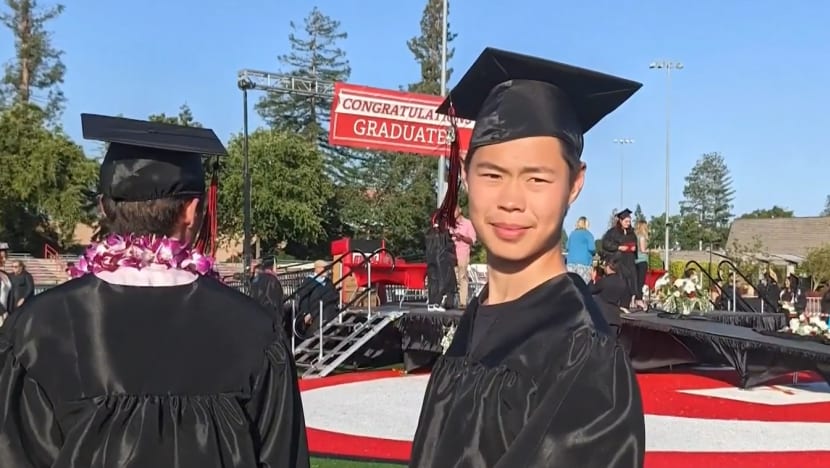Trump administration’s move to cut diversity programmes having a chilling effect, say rights groups
BERKELEY, California: As the United States government aims to get rid of what it calls illegal diversity, equity and inclusion (DEI) programmes, critics have decried its measures as going too far.
US President Donald Trump’s administration has cited discrimination against white and Asian students as justification for the threats.
But vagueness over what constitutes DEI is already having a chilling effect, according to rights groups and activists.
Since Trump returned to the White House in January, his administration has repeatedly threatened to withhold federal funding from schools – from kindergarten through higher education – that have DEI programmes.
In early April, the Department of Education gave K-12 – or kindergarten to 12th grade – schools a 10-day deadline to certify that they are complying.
It has also opened an investigation into 52 universities across 41 states, accusing the schools of using "racial preferences and stereotypes in education programmes and activities”.
In a letter sent in February, it specifically mentioned alleged discrimination against white and Asian students as part of the justification for the aggressive stance.
But Asian Americans who oppose the measures, including John C Yang, said this strategy would effectively pit minority groups against each other.
“That is one thing that we as Asian Americans will not stand for,” said Yang, who is president and executive director of civil rights group Asian Americans Advancing Justice.
“If you look at the polling that is done, Asian Americans support affirmative action programmes, support race-based programmes that lift up communities, and that support has been consistent through almost a decade of polling … that we’ve done.”
Yang noted that the administration has never defined what DEI is.
Reports have also emerged of universities cancelling graduations and other activities for “affinity groups”, he said.
“When I talk about affinity groups, whether these are groups for Asian-Americans, LGBTQ (lesbian, gay, bisexual, transsexual and queer) groups – these groups were formed because they were excluded, because they were being discriminated against,” he added.
OVERDUE SCRUTINY
For some parents of Asian students, alleged discrimination against their children is an issue that should have been scrutinised long ago.
California resident Nan Zhong said his son, Stanley, was denied admission to the University of California, Berkeley and more than a dozen other schools, despite having grades and test scores that were far above average.
The 19-year-old applied to UC Berkeley – one of the country’s top-ranked public universities – in 2023 but was rejected. He has since matriculated at the University of Texas at Austin.

The Zhongs have filed a lawsuit against UC Berkeley and several other schools over “discriminatory admissions practices that disadvantage highly qualified Asian American applicants”, seeking punitive damages.
According to the lawsuit, the younger Zhong was offered a PhD-level position as a software engineer at tech giant Google despite his multiple university rejections.
The US Justice Department is also investigating allegations that UC Berkeley and three others in California discriminated based on race in their admissions – a practice that the Supreme Court ruled was illegal two years ago.
The Zhongs decided to sue the universities that rejected Stanley in states that had pre-existing laws banning racial discrimination in admissions.
Nan Zhong told CNA: “Asians are the fastest growing ethnic group in California, but Asian enrolment in the selective UC campuses is actually trending down. So, between the two, there's a gap they have to explain to us.”
According to the US’ National Center for Education Statistics, Asians attend college at a higher rate than any other ethnicity in the country.
“We thought this was too weird a case which defies common sense, so we shared it with a local parent group on WeChat,” added Nan Zhong, referring to the popular Chinese messaging and social media application.
“Within 24 hours, to our surprise, it just circulated around the entire country.”
The University of California has since defended its admissions practices in the face of the lawsuits, saying that they are legal.
Amid mounting pressure from Washington, universities have become an important front in the battle over DEI – with the Trump administration's actions threatening to reshape American education at every level.免责声明:投资有风险,本文并非投资建议,以上内容不应被视为任何金融产品的购买或出售要约、建议或邀请,作者或其他用户的任何相关讨论、评论或帖子也不应被视为此类内容。本文仅供一般参考,不考虑您的个人投资目标、财务状况或需求。TTM对信息的准确性和完整性不承担任何责任或保证,投资者应自行研究并在投资前寻求专业建议。
热议股票
- 1
- 2
- 3
- 4
- 5
- 6
- 7
- 8
- 9
- 10